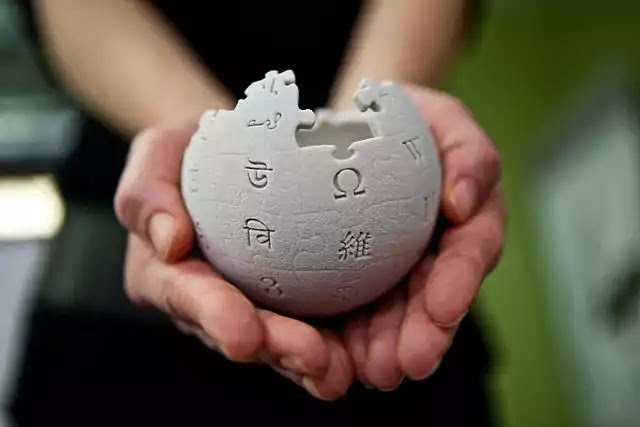Can You Trust Wikipedia?
 |
Wikipedia: everybody's favorite source of information on potentially rigged Super Bowl games, the flat Earth society, and the conspiracy theory that claims the early middle ages never existed.
Despite the craziness you might find on there, Wikipedia has a lot of interesting and useful information, but can you really believe what you read on Wikipedia?
The main concern is that anyone can edit Wikipedia, thus resulting in vandalism and complete nonsense. However, that's not exactly true.
 |
| No one can actually edit Wikipedia, only can change a version of an entry |
Nobody can actually edit Wikipedia. You can only edit a new version into existence. All previous versions of articles are saved in case of vandalism.
So you can only really add to Wikipedia, not change it permanently. Contrary to popular belief, the site is not a dumping ground for everybody's nonsense.
There are actually a quite large number of people who actively monitor, improve, and add to Wikipedia. Before we go any further, we need to know what exactly Wikipedia is.
It is simply an online encyclopedia. Just like Encyclopedia Britannica, or others, but online, thus opening itself up to the constantly evolving influx of information.
It is not a political system, a newspaper, a source of opinionated articles, or anything else that is not strictly neutral and informative. At least, that's the intent.
There are obviously people who don't appreciate those values, but nevertheless, the site is as strong as ever. But if you really need to know something, should you believe what you read on Wikipedia. The answer is yes, with an asterisk.*
 |
| Yes you can trust Wikipedia* |
Say for example you wanted to know the capital city of Vietnam. First, you look on Wikipedia. You find that it's Hanoi without difficulty.
But say you are skeptical. You want evidence. Click on Hanoi and scroll down to the references and the evidence speaks for itself.
However, a country’s capital city is fairly objective. With an obvious exception, there's no dispute over capital cities for the most part. Hanoi is the capital of Vietnam without question.
Ottawa is the capital of Canada without question. The problems on Wikipedia tend to arise when concerning subjective or qualitative subjects, rather than objective or quantitative.
Although there have been a few critical errors found in science-related articles, the people who desire that kind of information are less likely to be using Wikipedia to find it, as there are much more reliable sources elsewhere.
While people seeking information concerning popular culture, art, and other topics are less likely to be dependent on whether or not that information is 100% accurate.
In other words, a particle physicist would be less likely to check Wikipedia for information about supersymmetry, considering it is their own field of study and there are much better sources in the world of academia, while a fan of Star Wars would probably check Wikipedia for information on Darth Vader’s characteristics as the subject is fairly trivial and there are few consequences for misunderstanding the personality of a fictional supervillain.
Every once in a while, something slips through the guards of Wikipedia, and a false piece of information becomes accepted.
A famous example of this is the Brazilian aardvark. In 2008, a student jokingly said that a Coati, a type of raccoon, was also known as the Brazilian aardvark on Wikipedia.
Despite his intentions, the name quickly caught on and several articles from relatively reputable media outlets were produced without fact-checking.
 |
| Press cites Wikipedia, Wikipedia cites press |
An article from the Independent then became the cited source on Wikipedia, thus completing the circle. This is a famous example of circular reporting, where a piece of information seems to come from a number of sources, but really comes from one; especially when the one source is questionable.
However, the subjectivity of the topic at hand caused the false information to eventually become true. You can’t use Wikipedia as a source for the exact reason we just discussed.
It enables circular reporting. There’s even a section on Wikipedia which says “we do not expect you to trust us”.
It goes on to say that the site is primarily useful for gaining familiarity with the subject. Another article suggests you should not use Wikipedia for making important decisions. In other words, if you wanted to familiarize yourself with rocket science, Wikipedia is the place to go.
But if you wanted to build a rocket and leave this planet, which may I remind you has many illegal components, Wikipedia probably isn’t the way to go.
However, the sources Wikipedia gives are often useful. So, after you escape Interpol while making rocket fuel in your basement, you finally launch, but the space police are onto you. Where will you go?
Author: Declan Cooper-Smith


